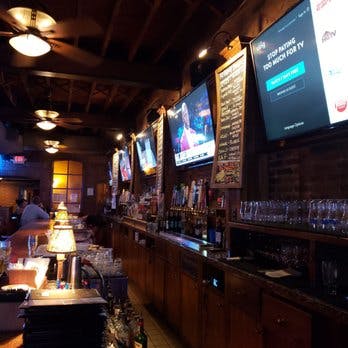October 8 — Restaurants to Biden Administration: Help Us Get Back To Work

FOR IMMEDIATE RELEASE
October 8, 2021
CONTACT:
Jeff Solnet
jeff@precisionstrategies.com
Restaurants to Biden Administration: Help Us Get Back To Work
Restaurants Down Nearly 1 Million Jobs Since Start of Pandemic
Over 82% of Independent Restaurant and Bar Owners Report Concern They Will Close Without an RRF Grant
WASHINGTON D.C. – Today, the Independent Restaurant Coalition released the following statement in response to the Bureau of Labor Statistics September jobs report indicating that restaurant and bar employment is still down 930,500 jobs since the start of the pandemic. The industry gained a meager 29,000 jobs in the past month, as small businesses nationwide struggle to keep their doors open and hire at competitive wages. Restaurants’ woes continue to impact many of the women they employ, as 109,000 women left the labor force in September.
"If the Biden Administration wants to help neighborhood restaurants get back to work, they should urge Congress to refill the Restaurant Revitalization Fund immediately," said Erika Polmar, Executive Director of the IRC. "The pandemic left independent restaurants and bars close to insolvent and unable to rehire the 11 million people they once employed. The administration received applications from nearly 200,000 eligible restaurants and bars who have been waiting six months for the help they were promised to keep their teams working. These businesses are doing everything they can to get by, but winter weather and the increasing cost of doing business makes that harder by the day. Tens of thousands of businesses who already received Restaurant Revitalization Grants which have helped them pay down 18 months of debt, offer competitive salaries for their employees, and adjust to new public health mandates. Congress and the Biden administration need to protect the millions of jobs dependent on neighborhood restaurants and bars and give our community the tools we need to keep working."
The Bureau of Labor Statistics' report also noted that "The weakness in employment in leisure and hospitality over the past two months coincides with stagnating sales and operating cost increases for restaurants, and falling consumer confidence. Restaurant dining-in was less common in September 2021 compared to September 2020, suppressing a valuable revenue stream that most restaurants have been unable to replace."
Restaurants and bars are struggling to survive. The Delta variant threatens to push more restaurants and bars into permanent closure. Since the beginning of the pandemic, more than 90,000 restaurants and bars have closed. There are now dining restrictions in more than a third of the states in the country. Restaurant reservations have plummeted in states across the nation; for instance in Brooklyn (34%), Cleveland (48%), Minneapolis (63%), and Raleigh (35%). bookings are far below their 2019 levels. According to a recent survey, 60% of adults changed their dining habits due to the Delta variant. These businesses have a pile of debt that is continuing to build — 51% of restaurants could not pay their September rent.
The IRC conducted an email survey indicating that the situation facing restaurants is more dire than ever:
85% of restaurant and bar owners reported not receiving an RRF grant.
Over 82% of restaurant and bar owners reported concern they will close without an RRF grant.
Nearly 1 in 5 (18.3%) of restaurant owners reported having their credit scores reduced below 570 during the pandemic — many of these operators cannot take on any more loans.
The Small Business Administration closed the RRF application portal, leaving over 177,000 restaurants and bars that applied for relief out in the cold. Restaurants and bars lost over $280 billion during the pandemic yet only received $28.6 billion in targeted relief. These businesses continue to deal with pandemic-induced headwinds — over the past year, the prices of beef and veal (59.2%), grains (98.0%), and shortening and cooking oil (43.5%) have surged. This relief will give many of the nation’s 500,000 independent restaurants and bars the support they need to survive the pandemic as well as the 16 million people they support to survive the pandemic.
Support for providing restaurants and bars the relief they need is continuing to grow. Senator Ben Cardin (D-MD) recently tried to add $48 billion by unanimous consent to add $48 billion to the RRF, invoking fierce speeches on the Senate floor from Majority Leader Chuck Schumer (D-NY) and Senator Dick Durbin (D-IL). The Restaurant Revitalization Fund Replenishment Act is gaining rapid bipartisan support as 221 members of the House of Representatives have come out in support of the bill, including Rep. Alexandria Ocasio-Cortez (D-NY-14), as well as 41 members of the Senate. Reps. Earl Blumenauer (D-OR-3) and Brian Fitzpatrick (R-PA-1) and Sens. Roger Wicker (R-MS) and Kyrsten Sinema (D-AZ) introduced the legislation in both chambers of Congress, which provides $60 billion in additional funding for the RRF.
Independent restaurant and bar operators worked with members of Congress to design the RRF so their small businesses could access the relief they need. This first-of-its-kind grant program provides debt-free support in the amount of annual revenue lost from 2019 and 2020, with special provisions for businesses that opened in 2020 and 2019. They can only be used on eligible expenses (below) incurred starting on February 15, 2020 and ending on March 11, 2023. Unused funds – or funds not used for these purposes – will be returned to the government. These expenses include:
Payroll (excluding employee compensation exceeding $100,000/year), employee benefits, and paid sick leave;
Mortgage, rent, and utilities;
Maintenance;
Outdoor seating construction;
Supplies, protective equipment, and cleaning materials;
Food and beverage;
Operational expenses;
And principal business payments for business debt.
This program caters to the most vulnerable businesses: grants cannot exceed $10,000,000 per restaurant group (which cannot have more than 20 entities), and $5,000,000 per business. The landmark legislation prioritizes awarding grants to women or Veteran-owned businesses, and socially and economically disadvantaged groups, including Black Americans, Hispanic Americans, Native Americans, Asian Pacific Americans and Subcontinent Asian Americans. And for the first time, the SBA provided an application in Spanish.
ABOUT THE IRC:
The Independent Restaurant Coalition was formed by chefs and independent restaurant owners across the country who have built a grassroots movement to secure vital protections for the nation’s 500,000 independent restaurants and the more than 11 million restaurant and bar workers impacted by the coronavirus pandemic.
###

